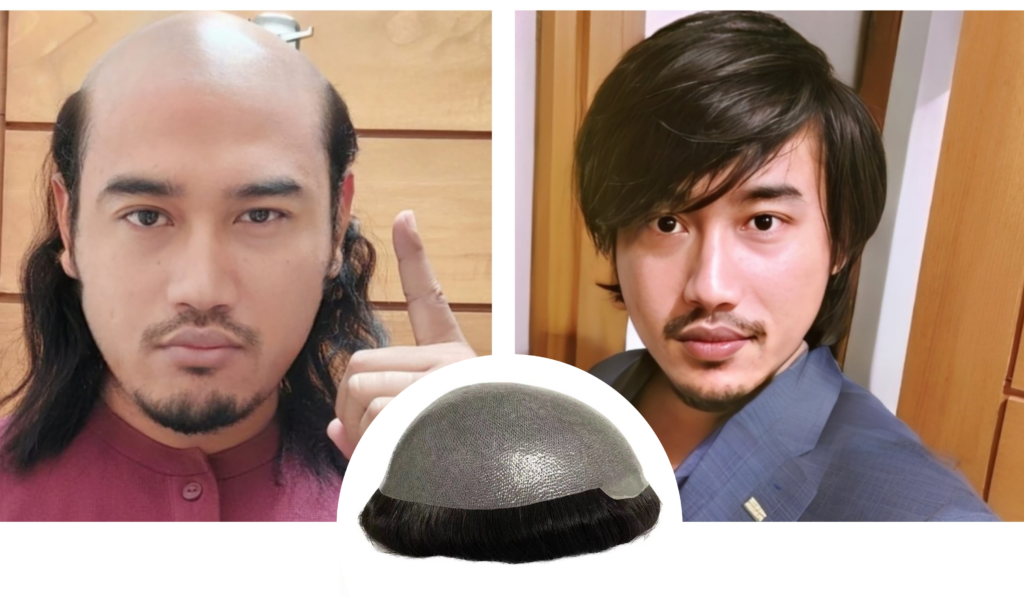You should know that there have been two types of adhesives on the market for some time: solvent-based and water-based. As you can imagine, both glues have pros and cons, let’s see which ones.
Those who want to focus on sealing and have a firmer, longer-lasting hold should look to solvent-based adhesives. But stability is not everything, if you have sensitive skin you may prefer water-based ones, with less fixation but useful to prevent redness and allergies.
The maintenance phase in this last case, for obvious reasons of sealing, will have to be done more frequently, but on the other hand, the removal of the glue will be really easy.
Unfortunately, wear and tear is inherent in any item and no prosthetic is immune to it. However, proper cleaning and the use of glue and non-aggressive products can help us keep our hair replacement system alive for a long time.
Hair replacement system vs transplant: what are the advantages?
The first obvious advantage of the prosthesis compared to surgery refers to the minimally invasive approach against which we are sure of the result.
In operations, transplant success rates should instead be evaluated based on the subject.
To conclude, those who do not want to undergo expensive and invasive surgery, or thickening practices such as tricopigmentation, have found the best solution to their problems in hair replacement system.
Our advice, if you choose to adopt a hair system, is to buy certified products; both for the care of the prostheses and for their installation.
It may seem trivial to you, but those who approach this world for the first time underestimate these elements. The products used during the application of the hair replacement system on the scalp, together with the technique used, with the same prosthesis, will show a completely different final result.


